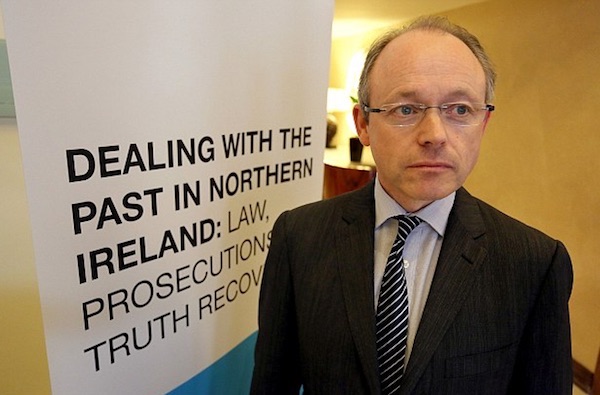
A prosecutor’s decision not to try the British soldier who shot dead a 15-year-old child in Derry in 1972 was “irredeemably flawed”, the High Court has ruled. Judges also ruled that the four-year delay by notorious former Crown Prosecutor Barra McGrory was “manifestly excessive, inexplicable, unjustified and unlawful”.
Daniel Hegarty was unarmed when he was shot twice in the head during a British army attempt to invade the Creggan area of the city in July 1972.
The military strategy behind the operation was to invade, saturate, and ultimately occupy nationalist areas throughout the Six Counties. Fatefully for Daniel, it began in Derry’s Bogside.
In a statement the soldiers involved claimed they issued a clear warning as youths approached, before opening fire from a distance of some 25 metres.
The soldier who fired the fatal bullets claimed to have pulled the trigger on the machine gun while on the ground, an account likely invented to suggest fear of a non-existent threat.
In 2011, in a breakthrough for justice campaigners, an inquest jury unanimously found Daniel posed no risk and had been shot by British soldiers without warning. The case was subsequently referred back to prosecutors.
But in March 2016, the former chief prosecutor, who has since resigned, decided not to pursue charges against the soldier who fired the fatal shots. At the time, he claimed there was no reasonable prospect of a conviction.
Referring to expert evidence, Michael Mansfield QC, for the family, argued that although a conviction could not be guaranteed, a jury could establish proof beyond reasonable doubt.
The High Court ruled on Wednesday that the evidential test imposed by the director of prosecutions was “too stringent”.
In their ruling, Justice Treacy, sitting with Justice Colton, pointed out that prosecutors only need to be satisfied there is credible evidence which could be proved - not that there will definitely be a conviction.
Ruling that McGrory (pictured) imposed too stringent a test, the judge continued: “We consider that the reasoning leading to the impugned decision not to prosecute is irredeemably flawed.
“In particular the decision of the director is founded on an unreasonable and rationally unsustainable hypothesis which is inconsistent with the case made by Soldier B.”
![[Irish Republican News]](https://republican-news.org/graphics/title_gifs/rn.gif)
![[Irish Republican News]](https://republican-news.org/graphics/title_gifs/harp.gif)

